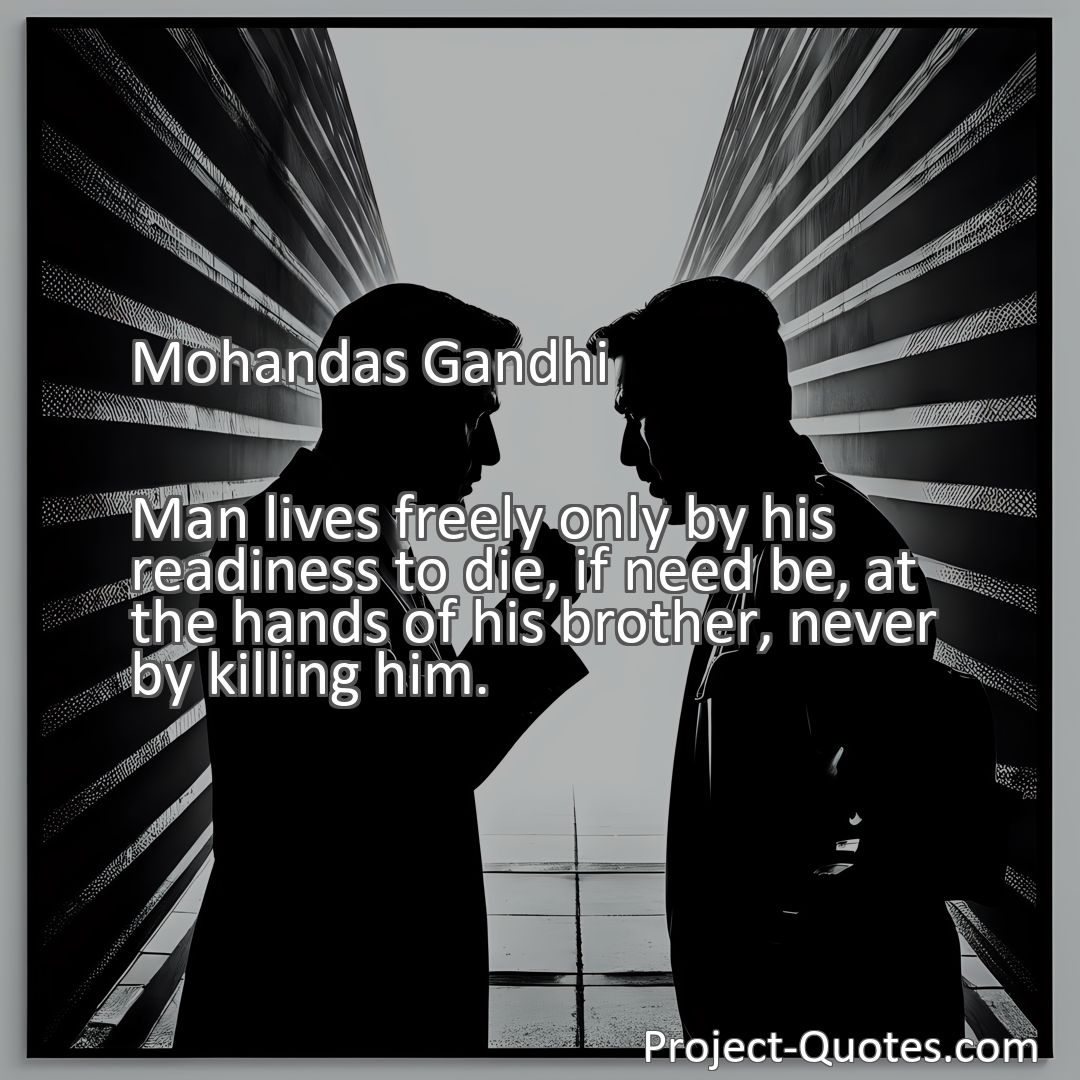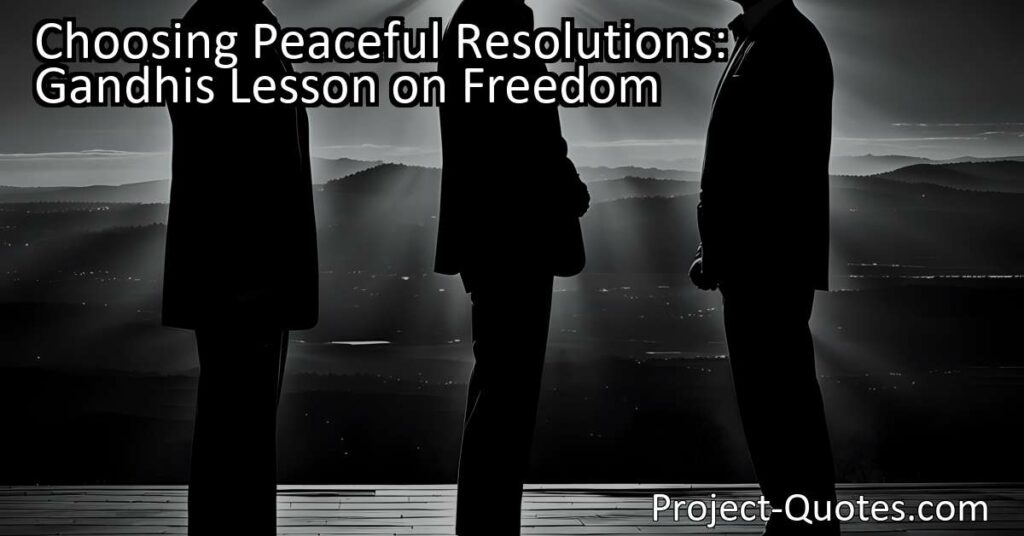Man lives freely only by his readiness to die, if need be, at the hands of his brother, never by killing him.
Mohandas Gandhi
Mohandas Gandhi’s teachings urge us to prioritize peaceful resolutions whenever possible. By choosing nonviolence over violence, we not only protect the lives of others but also preserve our own humanity and freedom. Gandhi’s lessons continue to be relevant today, offering valuable guidance on navigating conflicts in our modern world with empathy and compassion.
Table of Contents
Meaning of Quote – Man lives freely only by his readiness to die, if need be, at the hands of his brother, never by killing him.
In this quote by Mohandas Gandhi, a renowned leader who led India to independence using nonviolent civil disobedience, we are presented with a thought-provoking idea about the true meaning of freedom. Gandhi suggests that true freedom can only be achieved if we are willing to prioritize peace and unity over violence and conflict. He asserts that living freely means being prepared to sacrifice one’s own life, if necessary, rather than taking the life of another.
It is important to understand the context in which Gandhi made this statement. During India’s struggle for independence from British rule, violence and bloodshed were prevalent. Many people believed that the path to freedom involved armed conflict and aggression. However, Gandhi firmly believed in the power of nonviolence and peaceful means to achieve liberation. He called his approach Satyagraha, which translates to “truth-force” or “soul-force.” It was a philosophy based on love and compassion, rejecting violence, hatred, and revenge as solutions.
Gandhi’s viewpoint offers us a valuable lesson, applicable not only to historical struggles but also to our everyday lives. As individuals, we may encounter conflicts with others be it our family members, friends, or colleagues. It is easy to get caught up in anger and resentment, responding to hatred with more hatred. However, Gandhi’s proposition challenges us to reconsider our actions and responses. By refusing to harm others, even when faced with aggression, we can break the cycle of violence and elevate ourselves to a higher level of consciousness.
One might argue that self-defense is a legitimate reason to harm others, especially when our lives are at stake. While this is a valid concern and one that cannot be ignored, Gandhi encourages us to transcend our instinctual response and instead seek peaceful resolutions whenever possible. This does not mean giving up our personal safety or allowing ourselves to be victims of harm. It means exploring alternatives to violence, such as negotiation, dialogue, or seeking assistance from authority figures, that can help resolve conflicts without causing harm to others.
By choosing nonviolence over violence, we not only protect the lives of others but also preserve our own humanity. When we resort to violence, we risk becoming consumed by anger, revenge, and hatred. These negative emotions poison our own being and prevent us from experiencing true freedom. In contrast, embracing nonviolence allows us to remain connected to our core values and principles, nurturing empathy, compassion, and a genuine concern for the well-being of others.
Gandhi’s message is especially relevant in today’s society, where conflicts arising from differing beliefs, opinions, and ideologies have become increasingly common. It is easy to fall into the trap of viewing those who disagree with us as enemies, dehumanizing them in the process. However, if we follow Gandhi’s teachings, we can strive to engage in meaningful dialogue, finding common ground and understanding. This approach can lead to the resolution of conflicts and the creation of harmonious relationships.
Indeed, the path of nonviolence is not always easy. It requires immense courage and strength to choose peace over revenge, forgiveness over resentment. Gandhi himself faced numerous challenges and hardships throughout his journey, from imprisonment to public ridicule. Yet he remained steadfast, demonstrating the transformative power of peace and proving that nonviolence can bring about meaningful change.
Furthermore, the philosophy of nonviolence extends beyond the individual level. Gandhi’s teachings have inspired numerous individuals and movements around the world, from Martin Luther King Jr. and the Civil Rights Movement in the United States to Nelson Mandela and the anti-apartheid struggle in South Africa. These leaders have shown that nonviolent resistance is not a sign of weakness but rather a powerful force that can topple even the most oppressive regimes.
In conclusion, Mohandas Gandhi’s quote serves as a reminder of the true meaning of freedom. It calls us to question our notions of power and strength, encouraging us to prioritize peace and unity over violence and conflict. By choosing nonviolence, we not only protect the lives and well-being of others but also preserve our own humanity and freedom. Gandhi’s teachings continue to be relevant and influential, offering us valuable lessons on how to navigate the challenges of our modern world. Let us remember his words, and strive to live our lives guided by the principles of nonviolence and love.
I hope this quote inspired image brings you hope and peace. Share it with someone who needs it today!


